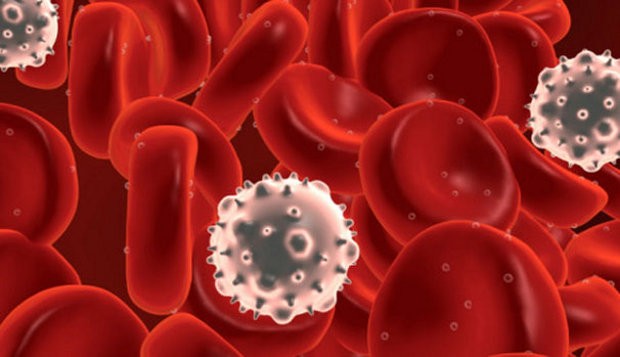Blood Cancer
Experimental treatment sends deadly leukemia into remission

|
An experimental new treatment approach for a rare, deadly leukemia can send the disease into remission even in patients for whom the standard therapy has failed, buying them more time to have the stem cell transplant that could save their lives, a small pilot study has found.
“It was unbelievable, really, seeing a patient who had already failed Campath [the drug typically used to treat the disease] literally going back into remission,” said Thomas P. Loughran Jr., M.D., director of the University of Virginia Cancer Center and one of the leaders of the study. “We were able to get every single patient back into remission.”
The new approach to battling T-cell prolymphocytic leukemia combines immunotherapy - boosting the body’s immune system - with epigenetics, the manipulation of gene activity. It’s a cutting-edge combination that holds great promise not just for treating T-cell prolymphocytic leukemia but, possibly, many other cancers as well. “There’s been a revolution in the last few years seeing success with immunotherapy, and people speculated that perhaps if you combined epigenetic and immunotherapy, that might be even more spectacular,” Loughran said. “This is proof of principle that this might be true.”
Targeted treatment can significantly reduce relapse in children with AML leukemia

|
The addition of a monoclonal antibody called gemtuzumab combined with standard chemotherapy has been shown to significantly reduce the risk of relapse and increase rates of disease-free survival in pediatric patients with acute myeloid leukemia (AML). Post-treatment relapse rates are a major indicator of potential for long-term survival in children with the disease.
The study (abstract #355) evaluated a total of 1,022 children averaging 10 years old at trial sites nationwide, led by Alan Gamis, MD, MPH, Associate Division Director, Section of Oncology at Children’s Mercy Hospital in Kansas City. It will be highlighted in an oral presentation Monday, Dec. 9, at the American Society of Hematology annual meeting in New Orleans.
“Chemotherapy has limits. Particularly in children, increasing doses further can become too toxic for the patient while still not achieving the desired effect on the cancer,” said Dr. Gamis. “This study is significant because it shows for the first time that this targeted treatment can augment the effects of chemotherapy in children and effectively reduce their risk of relapse. We found it was most effective in the patients most at risk.”
Gemtuzumab was removed from the U.S. market in 2010 because the U.S. Food and Drug Administration determined the potential risks of the drug outweighed the potential benefits. Recent research with the compound has raised questions about whether that action may have been premature. This data supports recent findings in adults with AML that gemtuzumab reduced their risk of relapse when added to standard chemotherapy.
Pet pig Nemo’s lymphoma treatment makes research history
|
|
When George Goldner went to feed his six pet pigs earlier this year, his 730-pound (331-kg) companion Nemo was acting strangely. Nemo had suddenly stopped eating and laid in the mud.
So Goldner loaded Nemo into a trailer and drove more than two hours to Cornell University Hospital for Animals (CUHA) in Ithaca, New York. There he learned his four-year-old Hampshire pig had what doctors believed was the blood cancer B-cell lymphoma.
The hospital’s researchers told Goldner they had never seen a pig treated for cancer. But that did not deter Goldner, a self-described animal lover, who asked doctors to devise a way to treat his pig based on their knowledge of cancer in dogs and humans and not worry about costs.
Gene defect that predisposes people to leukemia discovered
|
|
A new genetic defect that predisposes people to acute myeloid leukemia and myelodysplasia has been discovered. The mutations were found in the GATA2 gene. Among its several regulatory roles, the gene acts as a master control during the transition of primitive blood-forming cells into white blood cells.
The researchers started by studying four unrelated families who, over generations, have had several relatives with acute myeloid leukemia, a type of blood cancer. Their disease onset occurred from the teens to the early 40s. The course was rapid.
The findings will be reported Sept. 4 in Nature Genetics. The results come from an international collaboration of scientists and the participation of families from Australia, Canada, and the United States.
Scientists find new leukemia gene risk factors
|
|
Researchers have found four new genetic variants that increase the risk of contracting one of the major forms of leukemia, confirming that risk factors for the fatal blood cancer can be inherited.
The findings mean scientists now know of 10 genetic variants associated with chronic lymphocytic leukemia (CLL), scientists at Europe’s Institute of Cancer Research who conducted the study said.
The four new genetic factors are all common in European populations and each factor contributes to an increase in the risk of the disease.





